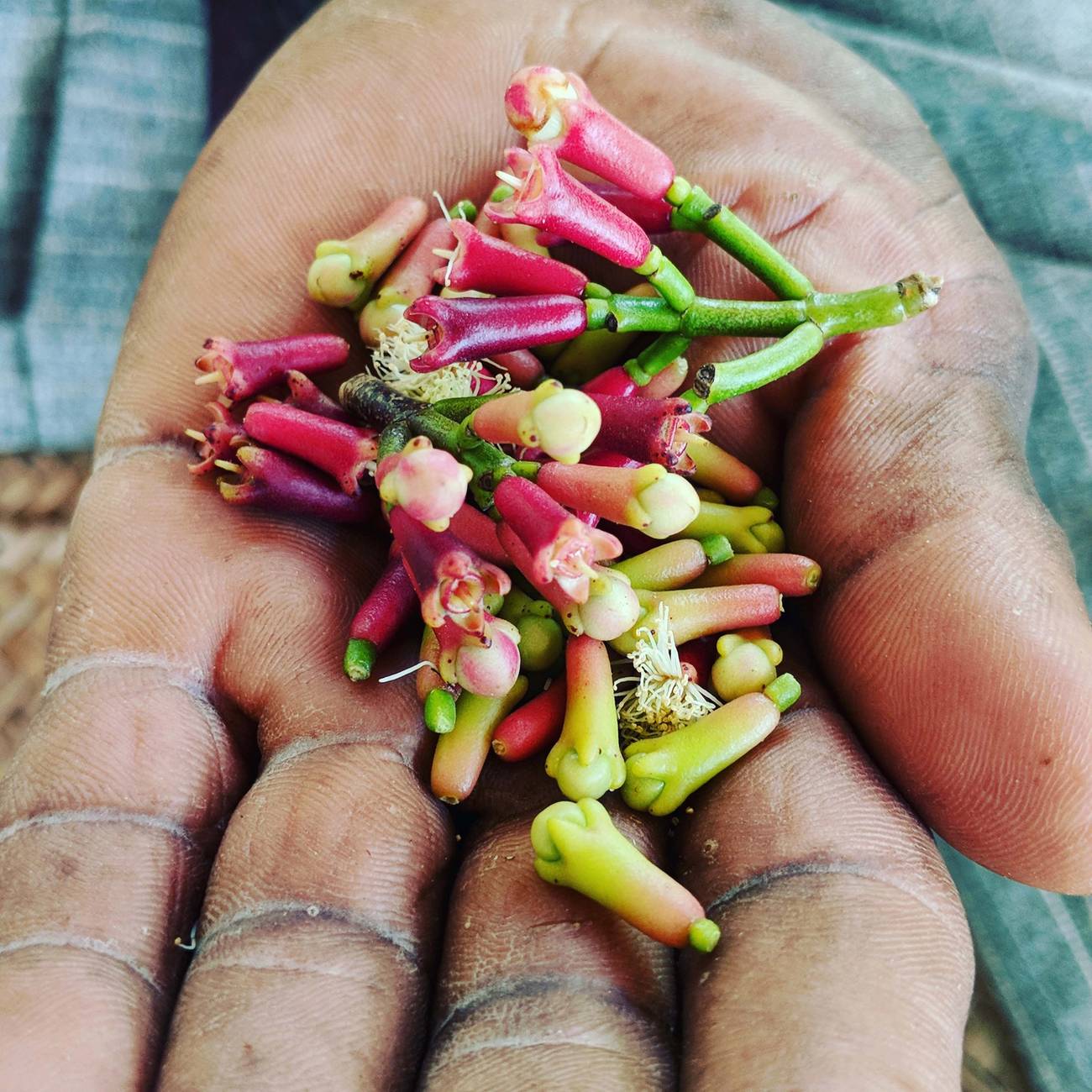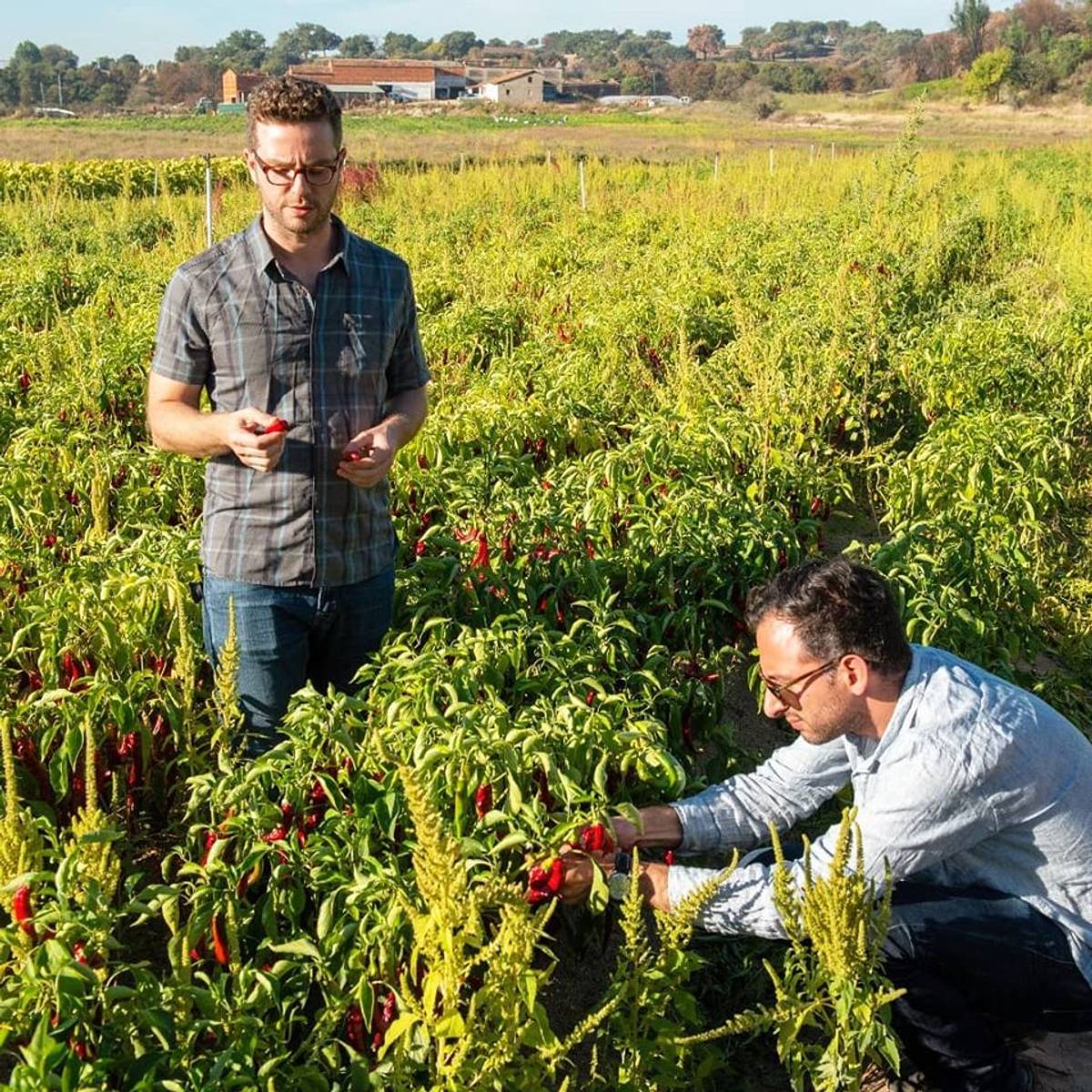Spice World
Burlap & Barrel found success bringing seasonings from around the globe to American restaurant kitchens. Then the pandemic came, and changed the whole business.




In late February, Ori Zohar—co-founder of Burlap & Barrel, a spice company that sources sustainable, single-origin spices—flew to India. It began as a routine trip, a chance for Zohar and his business partner Ethan Frisch to meet with farmers. But within a week it became clear that the trip would be cut short by COVID-19. “The country started to close down and the government was considering revoking foreign visas,” Zohar said.
On March 10, they boarded a plane back to the United States. By the time they landed in New York City, they realized they had both lost their senses of smell. Zohar and Frisch spent the next couple of weeks self-quarantined with the virus. Over the next few months, they recovered their ability to smell and taste—no small miracle, considering they work in the spice trade. But like so many other food business owners during the pandemic, they have had to make dramatic pivots.
Since Burlap & Barrel’s 2017 founding, restaurants have turned to the company for their high-quality, carefully curated spices like turmeric, smoked paprika, and sumac, as well as more esoteric offerings, like fermented white peppercorns (“their flavor mimics aged steak,” Zohar said) and wild Icelandic kelp (“it has this complex and briny mineral taste, like the ocean”). “The first time I smelled the wild cumin, I had this sensation of, ‘Oh, that’s how cumin is supposed to smell,’” said Ari Miller, chef at the acclaimed restaurant Musi in Philadelphia. “It felt like, ‘What have I been wasting my time with all these years?’”
In the wake of the pandemic, Zohar said that restaurant sales have significantly decreased. But with everyone cooking at home and increasingly buying ingredients online, sales to home cooks have risen to take their place. They are also about to become the primary spice supplier for Bi-Rite, the cult favorite grocery store in San Francisco. “Overall our sales are actually going crazy,” he said.
For Frisch and Zohar, this unprecedented time marks just another twist in a winding story of food entrepreneurism, social activism, and friendship. They met over a decade ago in New York City and immediately hit it off. Frisch, a born and bred New Yorker, worked as a line cook and pastry chef at Tabla and other fine-dining restaurants. As Zohar put it, “He was always the guy cooking really impressive things in his apartment in Chinatown over a tofu factory.” Zohar, meanwhile—an Israeli native who relocated to Baltimore with his family when he was 5—has been a lifelong entrepreneur.
In 2010, the two founded Guerilla Ice Cream, a roving ice cream cart selling flavors inspired by political movements, with profits supporting the Street Vendor Project. (The bestselling flavor, Libertação, paired chocolate-port-wine ice cream with cashews and brulee banana slices.) The company disbanded when Frisch moved to London to get a master’s degree in international relations. But the two knew they would eventually circle back together.

Fast forward several years: Zohar had relocated to San Francisco, where he co-founded a successful mortgage company focused on providing customers with transparent home loans. Frisch, meanwhile, had moved to Afghanistan to serve as an aid worker. While there, he got a part-time chef job at a Chinese restaurant in Kabul. He also hosted dinner parties in his home, inspired by ingredients he sourced from local markets.
“There is a variety of wild cumin that grows in the mountains of Afghanistan and is well known there,” Frisch said. But that particular cumin (the same one that Miller found so revelatory) was new to him. “I thought I knew my way around a spice cabinet, but I came across so many things I had never tasted before,” Frisch said. “It dawned on me that food tastes different in other countries not just because of cooking methods, but because the ingredients are different.”
Over the course of the year, he began to suspect that there was an audience in the States for the flavors he was encountering. “There is this impression, especially in New York, that chefs can get any ingredient at unparalleled quality, but with spices that wasn’t true,” Frisch said. On visits to the States, he began toting home spices in his checked luggage. He shared them with chef friends who promptly lost their minds over the things they tasted. “It quickly became an obsession for me,” he said.
After Frisch visited Zohar in San Francisco and told him about the chefs’ reaction, they decided this was their opportunity to start a new business together. (Whether or not they realized it at the time, that decision linked Zohar and Frisch to a long line of Jewish merchants who have historically been intimately involved in the spice trade.)
The pair also hoped to shift the traditional narrative of spice acquisition. Single-origin ingredients as a model had made inroads in the tea, coffee, and chocolate trades, but there has traditionally been scarce access to spices sourced via a fully transparent supply chain. Frisch began building relationships with growers he met through his contacts with international NGOs. “Many of these farmers were looking for ways to directly export their products,” he said. Today, Burlap & Barrel helps the growers do exactly that, eliminating the middleman and getting the spices directly into customers’ hands. “That almost never happens in the spice trade,” Zohar said.
Today Burlap & Barrel partners with farmers in Zanzibar (for peppercorns, cinnamon verum, cloves, and nutmeg), Turkey (sumac, thyme, poppy seeds, urfa chili), Vietnam (royal cinnamon), and Indonesia (star anise), among other places. These relationships allow them to ensure exceptional quality and offer lesser-known spices. They also ensure that farmers are fairly paid, and that Burlap & Barrel can share growers’ stories with customers.
In the first half of 2020, COVID-19 has affected the company’s sourcing abilities. Some of their partner farms are still under lockdown and some places, like Zanzibar, have canceled all commercial flights. “The global supply chains are generally in a state of disarray right now,” said Zohar. “Customs are so poorly staffed that things that generally take 24 hours are taking weeks.” Zohar and Frisch have found creative workarounds, from getting spices on a ferry to Tanzania where they could then be flown to the U.S., to essentially booking a first-class ticket for their spices on airplanes. “People can’t move right now, but the spices can,” Zohar explained.
This decreased sourcing coupled with an increase in interest and sales from home cooks means Burlap & Barrel has sold out of certain products like Zanzibar peppercorns and coriander from Egypt. Still, Zohar said, “having farmers spread out across the globe has been a saving grace.” Meanwhile, Zohar and Frisch are in the process of launching a few American-grown spices. America’s climate is not typically conducive to spice growing. But the company is currently working with farmers in upstate New York to bring sustainably harvested, dried wild ramp leaves to market.
While it is fair to suggest that Burlap & Barrel is helping to change the face of spice sourcing in America, Zohar and Frisch choose to take a humble view of their work. “At the end of the day, we realize we are two white Jewish dudes running this business,” said Zohar. “We are always looking for ways to give justice to the people who have spent their lives becoming the true experts.”